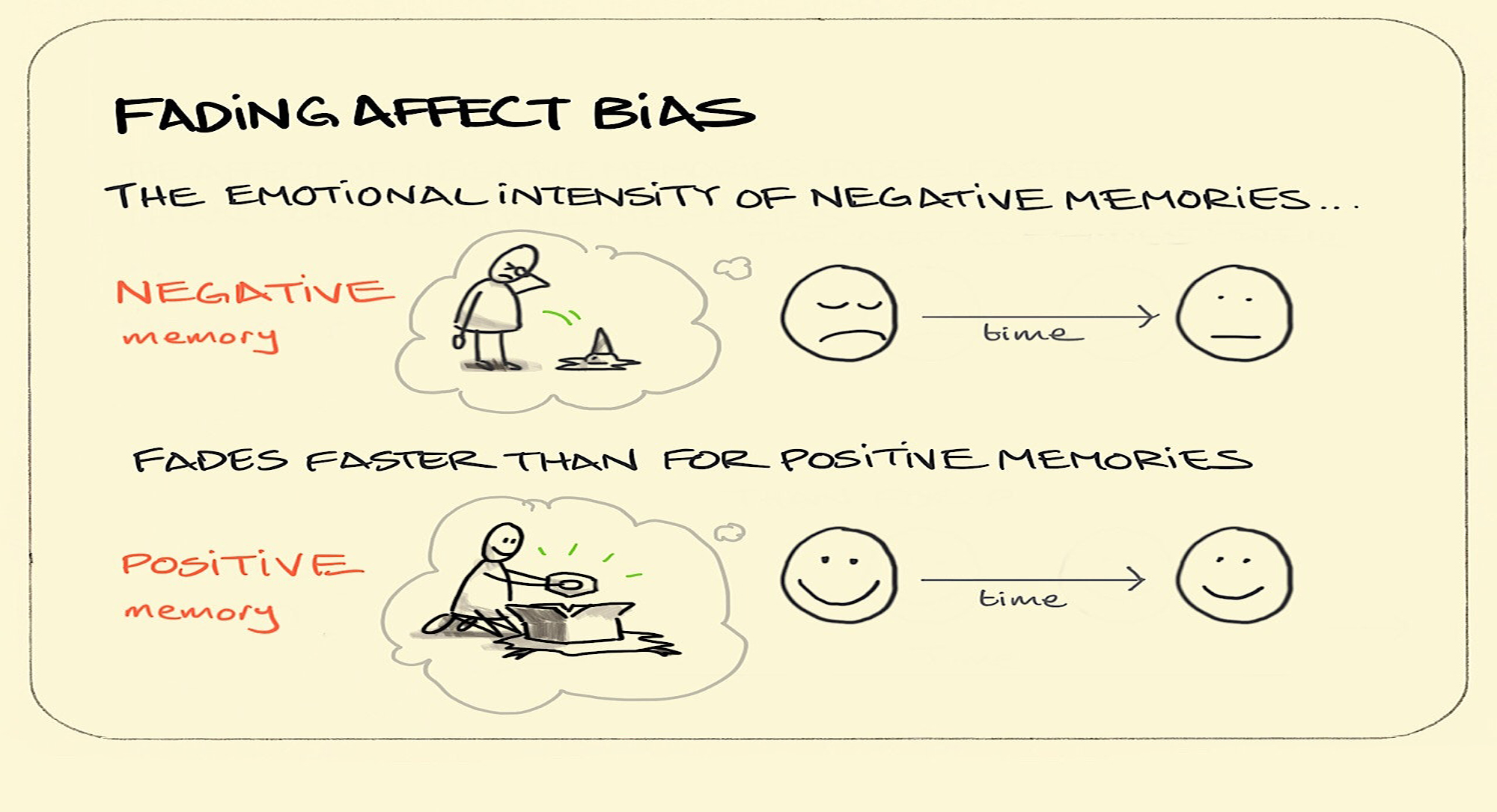The fading affect bias is a cognitive bias that occurs when individuals remember positive emotions and experiences more vividly and in greater detail than negative emotions and experiences. People tend to recall past events with a bias toward minimizing the emotional impact of negative experiences and amplifying the positive ones.
Explanations:
The fading affect bias is related to the psychological need for well-being and positive self-regard. People tend to remember positive experiences more clearly to protect their self-esteem and maintain a positive self-image.
Examples:
Relationships: After a breakup, someone may remember the positive moments of the relationship more vividly while minimizing the negative ones.
Job Satisfaction: An individual who left a stressful job may recall the enjoyable aspects of the job more prominently than the stress and difficulties.
Travel Memories: When thinking about a vacation, people often remember the enjoyable aspects of the trip more prominently than any inconveniences or discomfort.
Solutions:
Journaling: Keeping a journal or diary to record both positive and negative experiences can provide a more balanced record of events.
Mindfulness: Practicing mindfulness can help individuals become more aware of their emotional responses to experiences and events.
Emotional Intelligence: Developing emotional intelligence can improve one’s ability to recognize and process both positive and negative emotions.
Therapy: In some cases, therapy can be helpful for individuals who struggle with the fading affect bias and its impact on emotional processing.
Addressing the fading affect bias involves recognizing the tendency to remember positive experiences more vividly than negative ones and working to create a more balanced and accurate perspective of past events and experiences.
